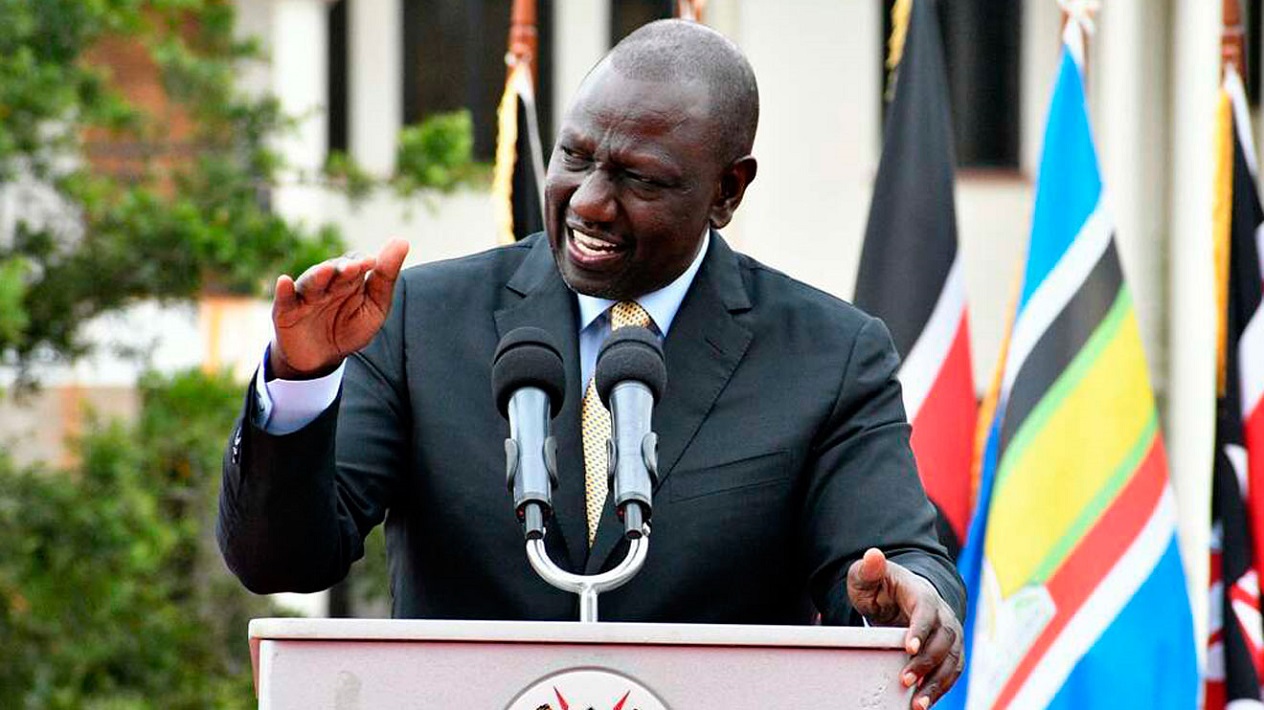The verdict of Kenya’s Supreme Court which validated results of the presidential elections held on August 9th 2022 has been applauded worldwide for its robust jurisprudence. The judgement and subsequent inauguration of Dr William Samoei Ruto as the fifth democratically elected President of Kenya on September 13th is a triumph for the will of the people expressed through the ballot at a time Africa had witnessed backsliding of democracy in Mali, Burkina Faso and Guinea.
Ruto’s closest challenger, Mr Ralia Odinga, had rejected results announced by Kenya’s Independent Electoral and Boundaries Commission, (IEBC), accusing its chairman, Wafula Chebukati, of a “blatant disregard of the constitution” and “gross impunity”. Worse still, four members out of the seven member electoral umpire led by the Vice-Chairperson, Juliana Cherera, had declared in a press conference before the final results could be collated, that the results to be announced by Chebukati were a “mathematical absurdity that defies logic”.
However, to resolve the impasse arising from the declared results, a seven-man panel of Kenya’s apex court led by Chief Justice Martha Koome in a unanimous verdict, stamped its independence as the final impartial arbiter and upheld Ruto’s election. Its ruling was not only unambiguous in defence of the ballot but also resolved emerging constitutional issues and ultimately deepened democracy in Kenya.
On all accounts, the National Association of Seadogs (Pyrates Confraternity) is convinced that there are useful lessons Nigeria should learn from Kenya as it prepares for the 2023 general elections. The outcome of the elections in Kenya offers a pathway for Nigeria’s Judiciary, President Muhammadu Buhari, the political parties, the Independent National Electoral Commission, (INEC), the security agencies and Nigerians to have a hitch-free 2023 general elections.
Indisputably, Kenya judiciary represented by the Supreme Court deserved all the accolades it has received for discharging its constitutional duties honourably by making the votes of Kenyans count. Though Justice Koome was appointed by former President Uhuru Kenyatta, this was not a factor as the judiciary under her defended the Constitution and stood up for the electorate.
The Nigeria Judiciary needs to take a cue from Kenya. The Bench in Nigeria which used to command great admiration from Nigerians in times past has through a combination of self-inflicted controversies, diminution of competence and intellectual sagacity, eroded respect Nigerians have for it. Many Nigerians are not impressed by the conduct of the judiciary especially in politically related cases such that open allegations of judicial robbery have been levelled against senior members of the Bench. Nigerians expect its judiciary as the third tripod in democracy to stand firm on the side of the Constitution and by extension the law.
We implore the Nigeria Judiciary to change the narrative of its handling of political cases and demonstrate its impartiality. Its composition of Election Petitions Tribunals and panels to sit in cases before the Appeal Court and Supreme Court, in the course or after the 2023 general elections, should be able to discharge its Constitutional duty without fear or favour. It should seek to put its best foot forward to handle cases to earn the trust of Nigerians and reinforce the integrity of the Bench as the bastion of democracy against electoral fraud.
The patriotic and courageous conduct of Mr Chebukati, and the two other members were major factors that salvaged democracy in Kenya. This is the exemplary bravery we expect of Prof Mahmood Yakubu, the INEC management team and electoral officials handling the 2023 general elections. Thankfully, INEC has shown with the elections in Edo, Ondo, Ekiti and Osun that it can conduct a seamless election in Nigeria. Now is not the time to drop the ball.
We demand from INEC, transparency on the actual number of registered voters to clear the air of alleged fake registration in certain quarters. Nigerians also deserve regular updates on the number of Permanent Voters Cards (PVC) collected. And as recently demonstrated with the Kenyan election where technology, despite noticeable hiccups, played a pivotal role in authenticating results, we enjoin INEC to consolidate its use of the Bimodal Voter Accreditation System (BVAS) and Results Viewing Portal to ensure credible and transparent elections to avoid needless controversy over election results. Given past experiences of dubious behaviours by some electoral officers, INEC should urgently purge itself of turncoats working with desperate politicians for pecuniary benefits to undermine the electoral process and stain the integrity of the electoral commission.
President Buhari, having eight months left in final tenure as President, owes Nigerians a peaceful, transparent, free, fair and credible 2023 election. Just like former President Kenyatta resisted the temptation to interfere in the Kenyan electoral process, we expect President Buhari to also resist the urge to give his party any unfair edge that could compromise the 2023 elections. President Buhari must be conscious to bequeath a worthy legacy of credible elections for Nigerians and we hold him to his words in the recent address to the United Nations General Assembly “I have set a goal that one of the enduring legacies I like to would like to leave is to entrench a process of free, fair and transparent and credible elections through which Nigerians elect leaders of their choice”
We call on security agencies in Nigeria to emulate their counterparts in Kenya by refusing to interfere in and sabotage the electoral process as had been the case in previous election seasons, where security agencies have been accused of seeing themselves as an extension of the government in power and participating in undermining the electoral process. We demand in the 2023 general elections the same attitude displayed by our security agencies in the off-season elections in Edo, Ondo, Ekiti and Osun which guaranteed a free and fair election.
Political parties, the candidates and their supporters have huge lessons to learn from Kenya. We expect political parties and candidates to take the responsibility to run issue- based campaigns and restrain their members and supporters from acts capable of truncating the democratic process. The dissemination of hate speeches and fake information about political opponents with the intention to discredit the electoral process are dangerous trends that threaten the democratic process and should be discouraged.
There is an inspiration in the outcome of Kenya’s Presidential elections for Nigerians as they prepare for the 2023 elections. The victory of Ruto against all odds, especially the fierce opposition from former President Kenyatta, has shown that an entrenched political establishment and dynasty can be dismantled by the collective will of the people. We call on Nigerians to get their Permanent Voters Card (PVCs), come out to vote for candidates of their choice and ensure through legitimate means that their will prevails. Every Nigerian has a shared role to play to guarantee credible elections in 2023.
Abiola Owoaje
NAS Capoon
Abuja


![[PRESS RELEASE] AFFIRMATION OF EMERGENCY RULE IN RIVERS STATE THROUGH “AYES AND NAYS”](https://www.nas-int.org/wp-content/uploads/2025/03/National-Assembly-Ayes-and-Nays-400x250.jpeg)

